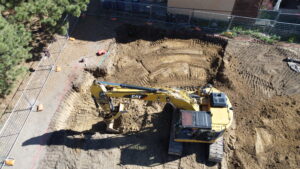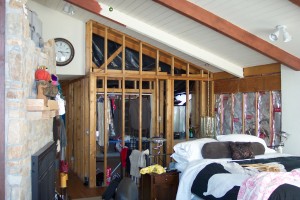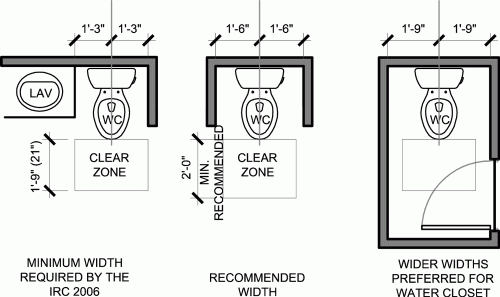We receive a lot of calls from homeowners and contractors about damaged concrete driveways asking if deicers or ice melts are the cause. The issue goes to a structural engineer to determine when the homeowners and contractors cannot agree on, the cause of the damage. Unfortunately, there are many rumors going around about the MagChloride used on the streets is causing many of the problems. Therefore, the contractor refuses to replace damaged concrete since he has been told it’s not his fault, it’s the MagChloride. There is a little truth to this, but it’s not the deicer attacking the concrete, it’s the increased freeze and thaw cycles deicers can create. The typical observed damage to the reported problem is spalling of a thin section of the surface or small pockmarks in the concrete surface. Many times the damage is concentrated where the car tires rest when parked in the driveway. The same type of damage can be found on concrete surfaces that have never been exposed to deicers.
So what does this all mean? Should you use deicers?
First, you need to understand what type of concrete mix was used. Flat work concrete at driveways and sidewalks typically require a 4,000psi 28day strength, air entrainment (air bubbles), minimum water, and an above average cement concentration. If this type of concrete mix was used then it should last for many years without any damage from deicers and freeze and thaw cycles. If a below average concrete mix was used it becomes very vulnerable to damage by freeze and thaw cycles and chemical attacks.
The deicers typically don’t attack the concrete, but by lowering the freezing temperature many people suggest that this increases the number of freeze and thaw cycles of the moisture on and in the surface of the flatwork. When moisture in the surface of the concrete freezes it will expand, popping off small areas of the concrete.
The same damage can occur by improper finishing of the concrete while curing and if an excessive amount of water was used. Turning the conflict between the homeowner and contractor into a stalemate over what’s to blame for the concrete damage.
Common deicers do not contain chemicals that damage properly designed concrete used for exterior flatwork, although a few fertilizers used for deicing or traction do. Fertilizers contain ammonium nitrate and ammonium sulfate that can severely damage concrete.
The common deicers that are generally safe to use on concrete are:
Sodium Chloride (rock salt) – very common but can pollute lakes and rivers and corrode metal with the release of chloride
Calcium Chloride – Can cause skin irritation and is high concentrations chemically attack concrete
Potassium chloride – Limited to range of temperature use unless mixed with other chemicals
Magnesium chloride – Releases less chloride and in general less toxic to plants
The use of deicers to help speed up snow removal and prevent ice more than makes up for the slight damage it may cause to concrete. It’s much easier to replace a driveway than a hip bone!
Use deicers moderately and remove excess salt to prevent any high concentrations.











4 thoughts on “Do Deicers or Ice Melts Damage Concrete?”
What is the best way to repair the damage to concrete (small chunks of concrete popped off) and prevent re-occurrence?
I don’t know how accurate this report is. I have a concrete sidewalk in front of my house that tells a way different story. The past three years we have had a problem with ice damming on our roof which has lead to ice on our walk. We have used ice for safety reasons. There is more than surface pockmarks. The concrete is crumbling over 2″ through. I am slowly sweeping the concrete and gravel away.
Very factual article. Thanks for doing your homework! Many of our customers prefer to use an electric thawing blanket when melting ice and snow. Powerblanket makes a construction grade, waterproof, outdoor heated blanket that makes quick work of driveway thawing, sidewalk melting, roof & gutter deicing, and ground thawing. Site: http://www.powerblanket.com/Ground_Thawing-c-2.html
Excellent factual article that gets all the points correct!
Thank you Jim Houlette for getting right and providing your readers with facts about these chemical deicers.
Good job.
Comments are closed.